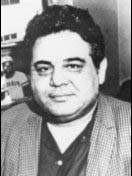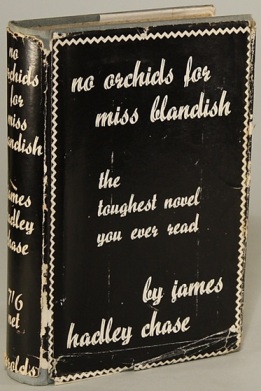
George Robert Philips McFarland was an American actor most famous for starring as a child as Spanky in Hal Roach's Our Gang series of short-subject comedies of the 1930s and 1940s. The Our Gang shorts were later syndicated to television as The Little Rascals.

Glynis Margaret Payne Johns was a British actress. In a career spanning eight decades on stage and screen, Johns appeared in more than 60 films and 30 plays. She received various accolades throughout her career, including a Tony Award and a Drama Desk Award as well as nominations for an Academy Award, a Golden Globe Award and a Laurence Olivier Award. She was one of the last surviving stars from the Golden Age of Hollywood and classical years of British cinema.

Angels with Dirty Faces is a 1938 American crime drama film directed by Michael Curtiz for Warner Brothers. It stars James Cagney, Pat O'Brien, The Dead End Kids, Humphrey Bogart, Ann Sheridan, and George Bancroft. The screenplay was written by John Wexley and Warren Duff based on the story by Rowland Brown. The film chronicles the relationship of the notorious gangster William "Rocky" Sullivan with his childhood friend and now-priest Father Jerry Connolly. After spending three years in prison for armed robbery, Rocky intends to collect $100,000 from his co-conspirator Jim Frazier, a mob lawyer. All the while, Father Connolly tries to prevent a group of youths from falling under Rocky's influence.

Salvatore Mineo Jr. was an American actor. He was best known for his role as John "Plato" Crawford in the drama film Rebel Without a Cause (1955), which earned him a nomination for the Academy Award for Best Supporting Actor at age 17, making him the fifth-youngest nominee in the category.

Giuseppe "Joe the Boss" Masseria was an early Italian-American Mafia boss in New York City. He was boss of what is now called the Genovese crime family, one of the New York City Mafia's Five Families, from 1922 to 1931. In 1930, he battled in the Castellammarese War to take over the criminal activities in New York City. The war ended with his murder on April 15, 1931, in a hit ordered by his own lieutenant, Charles "Lucky" Luciano, in an agreement with rival faction head Salvatore Maranzano.

McClure's or McClure's Magazine (1893–1929) was an American illustrated monthly periodical popular at the turn of the 20th century. The magazine is credited with having started the tradition of muckraking journalism, and helped direct the moral compass of the day.

Samuel Joseph Byck was an American hijacker and attempted assassin. On February 22, 1974, he attempted to hijack a plane flying out of Baltimore/Washington International Airport, intending to crash into the White House in the hopes of killing President Richard Nixon. During the incident, Byck killed a policeman and a pilot, but was shot and wounded by another policeman before committing suicide.
The Irish Mob is a usually crime family–based ethnic collective of organized crime syndicates composed of primarily ethnic Irish members which operate primarily in Ireland, the United States, the United Kingdom, Canada and Australia, and have been in existence since the early 19th century. Originating in Irish-American street gangs – famously first depicted in Herbert Asbury's 1927 book, The Gangs of New York – the Irish Mob has appeared in most major U.S. and Canadian cities, especially in the Northeast and the urban industrial Midwest, including Boston, New York City, Philadelphia, Pittsburgh, Baltimore, Cleveland, and Chicago.
Corey Parker is an American actor and acting coach.

Richard Cutts was an American merchant and politician. A Democratic-Republican, he was most notable for his service as Second Comptroller of the United States Treasury from 1817 to 1829 and a United States representative from Massachusetts from 1801 to 1813.
The New Orleans crime family, also known as the Marcello crime family or the New Orleans Mafia, was an Italian-American Mafia crime family based in New Orleans, Louisiana. The family had a history of criminal activity dating back to the late nineteenth century. These activities included racketeering, extortion, gambling, prostitution, narcotics distribution, money laundering, loan sharking, fencing of stolen goods, and murder. Operating along the Gulf Coast, with its main criminal activity centered in the New Orleans area, the organization reached its height of influence under bosses Silvestro Carollo and Carlos Marcello.

Samuel Ross Mason, also spelled Meason, was a Virginia militia captain, on the American western frontier, during the American Revolutionary War. After the war, he became the leader of the Mason Gang, a criminal gang of river pirates and highwaymen on the lower Ohio River and the Mississippi River in the late 18th and early 19th centuries. He was associated with outlaws around Red Banks, Cave-in-Rock, Stack Island, and the Natchez Trace.
The Gainsborough melodramas were a sequence of films produced by the British film studio Gainsborough Pictures between 1943 and 1947 that conformed to a melodramatic style. The melodramas were not a film series but an unrelated sequence of films that had similar themes that were usually developed by the same film crew and frequently recurring actors who played similar characters in each. They were mostly based on popular books by female novelists and they encompassed costume dramas, such as The Man in Grey (1943) and The Wicked Lady (1945), and modern-dress dramas, such as Love Story (1944) and They Were Sisters (1945). The popularity of the films with audiences peaked mid-1940s when cinema audiences consisted primarily of women. The influence of the films led to other British producers releasing similarly themed works, such as The Seventh Veil (1945), Pink String and Sealing Wax (1945), Hungry Hill (1947), The White Unicorn (1947), Idol of Paris (1948), and The Reluctant Widow (1950) and often with the talent that made Gainsborough melodramas successful.

Good-Time Girl is a 1948 British film noir-crime drama film directed by David MacDonald and starring Jean Kent, Dennis Price and Herbert Lom. A homeless girl is asked to explain her bad behaviour in the juvenile court, and says she’s run away from home because she’s unhappy there. They explain in detail what happened to the last girl who thought she could cope on her own, and this becomes the main plot.
Gang Busters is an American dramatic radio program heralded as "the only national program that brings you authentic police case histories." It premiered on January 15, 1936, and was broadcast over 21 years through November 27, 1957.

No Orchids for Miss Blandish is a 1939 crime novel by the British writer James Hadley Chase. It was a critical and commercial success upon release, though it also provoked considerable controversy due to its explicit depiction of sexuality and violence. In 1942, the novel was adapted into a stage play and in 1948 it became a British film. The novel became particularly popular with British servicemen during World War II.

The caning of Charles Sumner, or the Brooks–Sumner Affair, occurred on May 22, 1856, in the United States Senate chamber, when Representative Preston Brooks, a pro-slavery Democrat from South Carolina, used a walking cane to attack Senator Charles Sumner, an abolitionist Republican from Massachusetts. The attack was in retaliation for an invective-laden speech given by Sumner two days earlier in which he fiercely criticized slaveholders, including pro-slavery South Carolina Senator Andrew Butler, a relative of Brooks. The beating nearly killed Sumner and contributed significantly to the country's polarization over the issue of slavery. It has been considered symbolic of the "breakdown of reasoned discourse" and willingness to resort to violence that eventually led to the Civil War.

The Purple Gang is a 1960 American period crime film directed by Frank McDonald and starring Barry Sullivan, Robert Blake and Jody Lawrance. It portrays the activities of The Purple Gang bootlegging organization in Detroit in the 1920s
Charles Anthony Hughes was an actor in American films and television. He appeared in several Three Stooges films.













